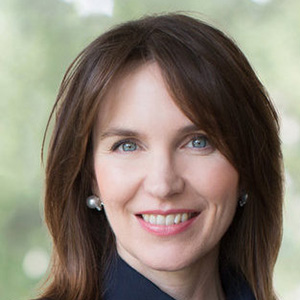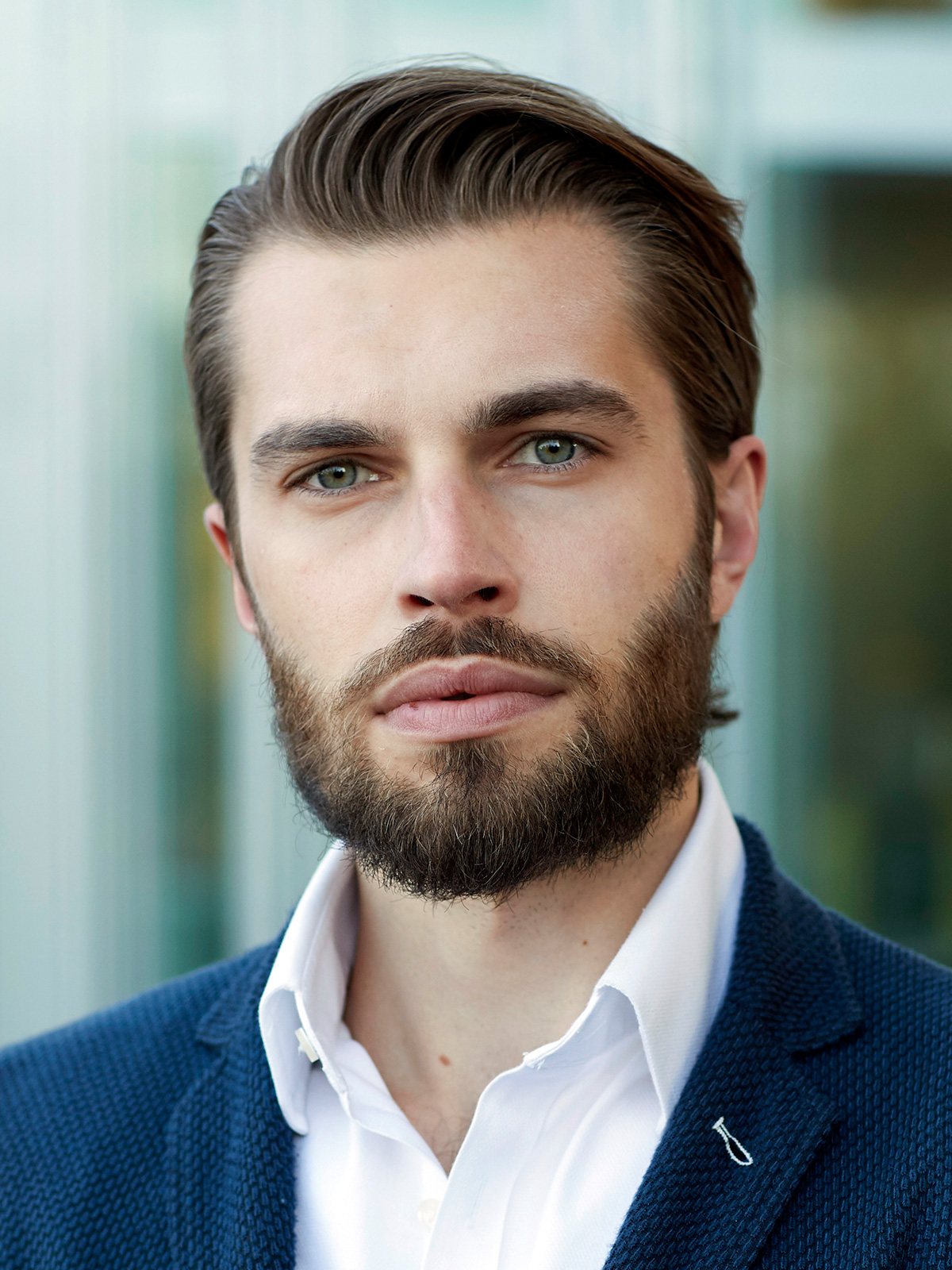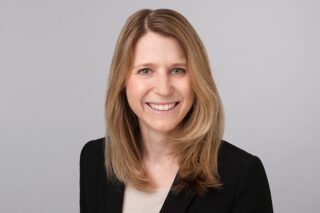





Name: Dominik Krzysztofek
Nationality: German
Year Graduated: EMBA 53 (2019)
Current Organization: Cinetrade AG
Current Role: Head of Strategy & Business Development

Tell us more about your professional background. What were you doing prior to embarking on the Executive MBA HSG?
After completing my Master’s degree in International Business, I joined Roland Berger as a Business Consultant. In four exciting years, I was able to develop strategy concepts for media and telecommunications companies, assess business cases and accompany change management processes. In most cases, my projects took me abroad, where intercultural skills were as important as analytical skills. I then took the experience I gained with me to Switzerland, where I started working as Senior Strategy Manager at Swisscom. My career focus lies in the holistic development of the entertainment proposition for the sustainable differentiation of the core products in the market.
Why did you decide to do an EMBA programme? Why did you choose the EMBA HSG?
Globalization and digitalization are accelerating social and economic change. Against this background, lifelong learning is now indispensable in order to survive in the often-quoted “VUCA” world. In addition to technical impulses in the areas of corporate management and change management, it was particularly important for me to study with peers who are not from my industry in order to broaden my perspective. In addition to the excellent reputation of the HSG as a university in which business management areas such as economics, sustainability and social responsibility are a symbiosis in business administration, I immediately liked the systematic interaction of theory and practice within the EMBA HSG programme. The modular composition of my studies was also compatible with my regular job.
How has the EMBA HSG programme changed you personally?
On the basis of numerous, sometimes very profound, conversations with lecturers as well as fellow students, I have critically reflected on certain ways of thinking and behavior. Although it is necessary to develop well-founded strategies and concepts, they are not sufficient to fully transform a company in today’s business world. A transformational management style is required to inspire employees with a vision and to make the organization more resilient. The topic of corporate culture is rightly gaining in importance, yet many managers find it difficult to create a trusting and productive working environment that systematically promotes ownership, continuous learning and associated innovation. Changes are difficult to prescribe top-down, real leaders lead the way decisively and embody the desired values and behaviors according to the motto: “Be the change that you want to see in the organization”.
How has the EMBA HSG programme made a difference in your career?
During the EMBA programme, I changed my job from Swisscom AG to Cinetrade AG, which is the leading Swiss film rights and content trading company for the purchase and exploitation of programme and sports rights. It has been 100% owned by Swisscom AG since late autumn 2017. I became the Head of Strategy and Corporate Development for Cinetrade AG. The media and entertainment industry is undergoing an enormous transformation, which is why I see this position as an exciting challenge to gradually but sustainably transform such a traditional company that is active at all stages of the (film) exploitation chain, including the cinema. It is important to note that corporate development includes an internal view of the organization, which in turn focuses on topics such as culture, leadership and resilience.
What did you appreciate the most about the EMBA HSG curriculum?
In principle, the relationship between compulsory and elective courses was very balanced, the entire programme was logically structured and well organised. In most modules, there was sufficient freedom to reflect critically on the course content in relation to one’s own professional experience and to apply it in practice. This was accomplished by case studies, often in groups, but also by certain (outdoor) activities and exercises. In addition, the required attention has been paid to further developing soft skills, which are becoming increasingly important for managers in dealing with diverse stakeholder groups. I always found the inclusion of guest lecturers from the business world stimulating as new impetuses were given and different perspectives presented.
Was there a particular course that you enjoyed most, and why?
On the one hand, I really liked the module “Next Level Leadership” because, besides the well-founded and relevant contents, the interactive teaching methodology stood out particularly positively. On the other hand, the last two weeks of the course, which we spent abroad, were extremely instructive and exciting. As part of the “International Management” module, we got to know the political, social and economic characteristics of the Chinese and Japanese markets in Shanghai and Tokyo, respectively. This initial theoretical knowledge was then put to the test on the basis of certain “company visits” on site. Designing a Go-2-Market Plan for a real existing product from our own fields of employment for these markets promoted the holistic integration of the learnings from different modules and set an appropriate conclusion.
What advice would you give potential participants who are looking to do an EMBA HSG?
The most important point is certainly to be open without being reserved and also to confront others’ opinions, convictions and sometimes controversial discussions as an opportunity to expand your individual horizons. Furthermore, participants should try to integrate newly learnt and enriching concepts into their daily work – this enhances the learning effect and ideally helps their own organization. Last but not least, I recommend that participants take a strategically well-considered approach when selecting and working on the topic for the diploma thesis. A discussion of a particular question that is so intensive should be rewarded with significant added value. The entire process – from idea generation to submission – represents the opportunity to acquire expertise on a relevant topic, to actively shape one’s own positioning within the company and to lay the foundation for sustainable success.
You are working for Cinetrade AG, what were your observations and challenges in the most recent edition of the Zurich Film Festival?
The 15th edition of the Zurich Film Festival (ZFF) was the most visited and last under the direction of Nadja Schildknecht and Karl Spoerri with 117,000 spectators. This kind of magnitude of success always presents itself with opportunities as well as risks. Today’s primary concern is to continue ensuring adequate financing and to put together a unique high-quality program. This also includes the expansion of the content of events as well as investments in digital technologies in order to improve the overall customer experience. In the context of the current discussion as to what influence streaming services will still have on the cinema market, I was personally very pleased to see the enthusiasm of the visitors – especially of course at the gala premieres in our cinema Corso am Bellevue. Films are ultimately artistic works, some of which reflect the zeitgeist of an epoch in a culturally influential way and can be staged nowhere better than in the cinema – the associated sense of community paired with outstanding picture and sound quality is simply irreplaceable.
 EMBA HSG Impact, News
EMBA HSG Impact, News
 EMBA HSG Impact
EMBA HSG Impact
Do you have any questions or require further information? We will be happy to help.